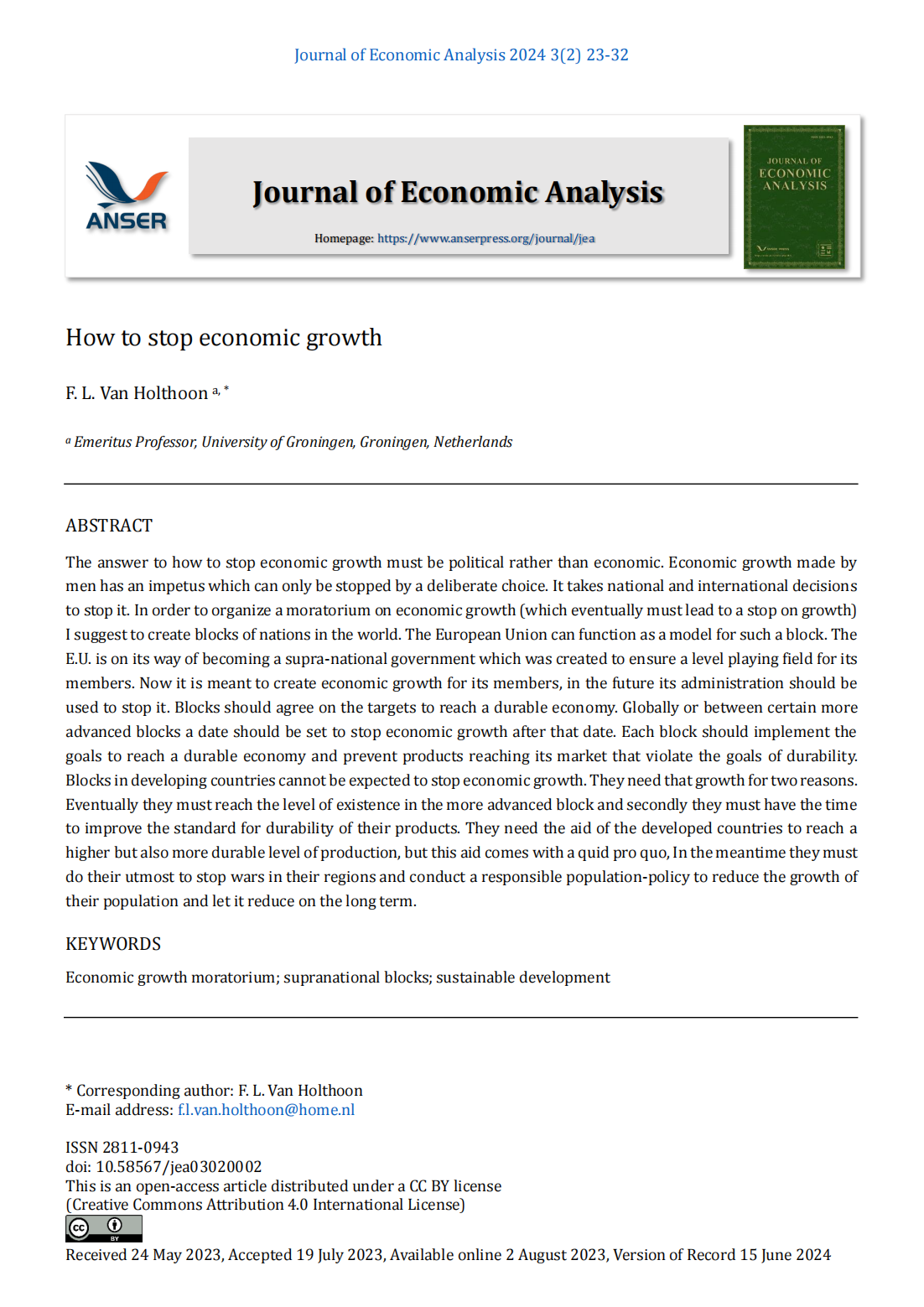How to stop economic growth
DOI:
https://doi.org/10.58567/jea03020002Keywords:
Economic growth moratorium; supranational blocks; sustainable developmentAbstract
The answer to how to stop economic growth must be political rather than economic. Economic growth made by men has an impetus which can only be stopped by a deliberate choice. It takes national and international decisions to stop it. In order to organize a moratorium on economic growth (which eventually must lead to a stop on growth) I suggest to create blocks of nations in the world. The European Union can function as a model for such a block. The E.U. is on its way of becoming a supra-national government which was created to ensure a level playing field for its members. Now it is meant to create economic growth for its members, in the future its administration should be used to stop it. Blocks should agree on the targets to reach a durable economy. Globally or between certain more advanced blocks a date should be set to stop economic growth after that date. Each block should implement the goals to reach a durable economy and prevent products reaching its market that violate the goals of durability. Blocks in developing countries cannot be expected to stop economic growth. They need that growth for two reasons. Eventually they must reach the level of existence in the more advanced block and secondly they must have the time to improve the standard for durability of their products. They need the aid of the developed countries to reach a higher but also more durable level of production, but this aid comes with a quid pro quo, In the meantime they must do their utmost to stop wars in their regions and conduct a responsible population-policy to reduce the growth of their population and let it reduce on the long term.
References
Angell, N. (1913). The great illusion: A study of the relation of military power to national advantage. W. Heinemann.
Freud, S. (1930). Das Unbehagen in der Kultur. Vienna: Internationaler Psychoanalytischer Verlag.
Guizot, F. P. G. (1839). Histoire générale de la civilisation en Europe. Jamar.
Keynes, J. M. (1926). The end of laissez-faire. In Essays in persuasion (pp. 272-294). London: Palgrave Macmillan UK. https://doi.org/10.1007/978-1-349-59072-8_21
Mannheim, K. (2013). Ideology and utopia. Routledge. https://doi.org/10.4324/9781315002828
Mill, J. S. (2020). Principles of political economy. In Forerunners of Realizable Values Accounting in Financial Reporting (pp. 14-22). Routledge.

Downloads
Published
How to Cite
Issue
Section
License
Copyright (c) 2024 Frits Van Holthoon

This work is licensed under a Creative Commons Attribution 4.0 International License.



